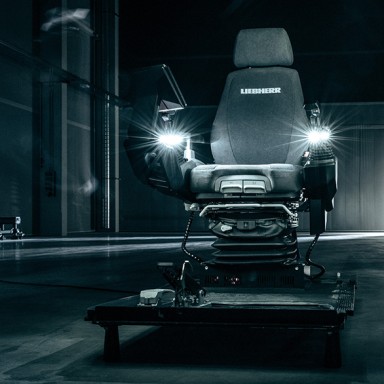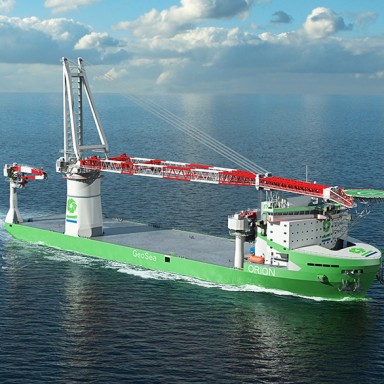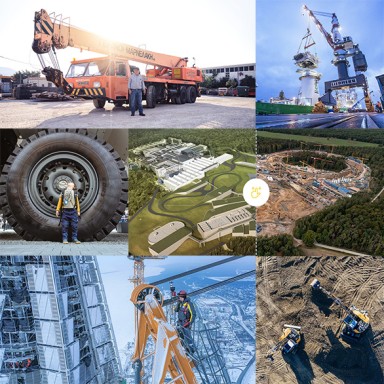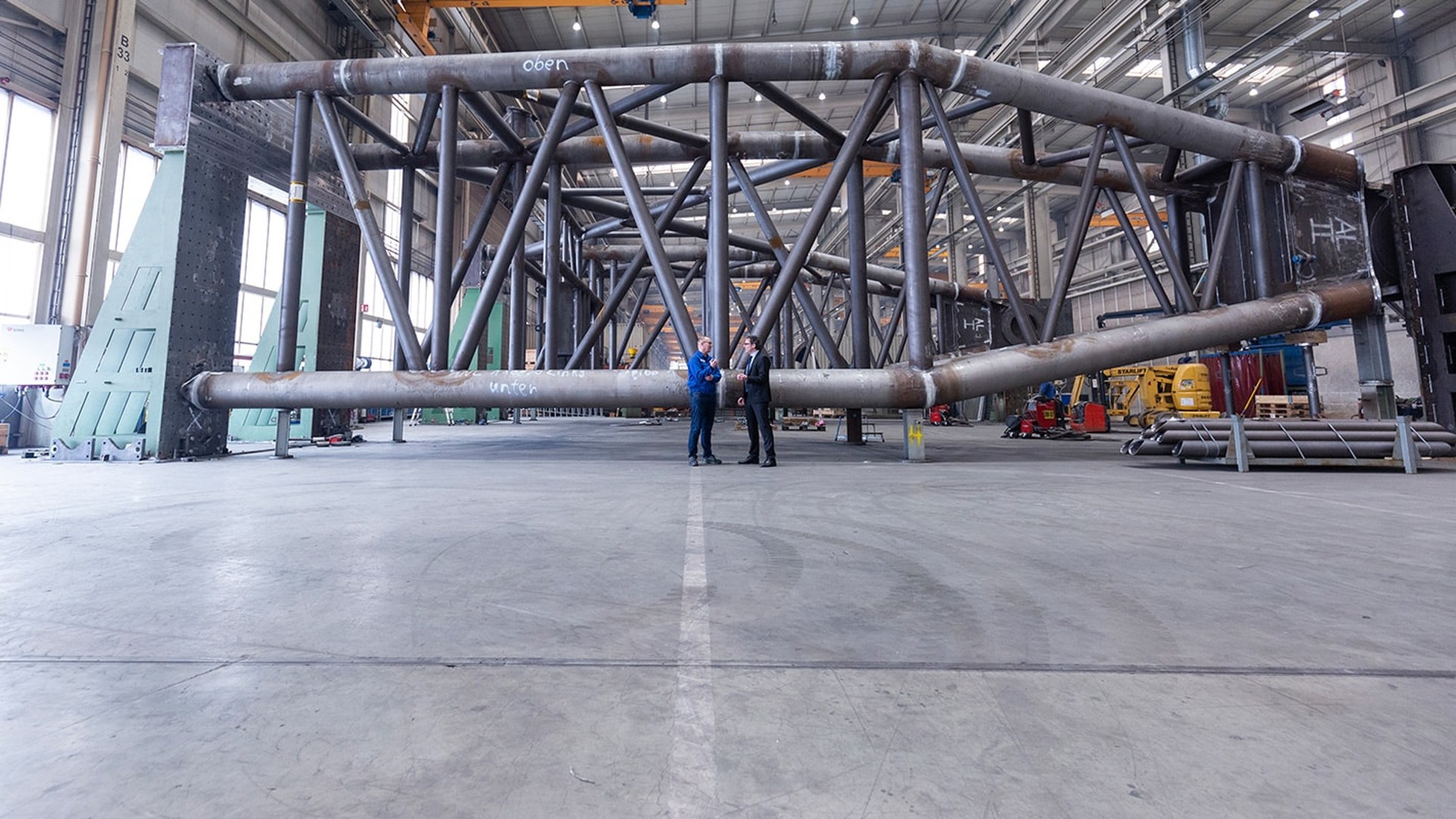
4 minutes reading time
Something big is happening in Rostock
Something is moving in Rostock’s international port. Something big – with load capacities that are unique within Europe. A 164-metre-high portal heavy-duty crane is adorning the Baltic coast at this point. But even this colossus on rails only serves the purpose of building an even more impressive crane: the HLC 295000. Dr Reinhard Krappinger, the technical director of the Maritime Cranes division, reports in an interview on the challenges involved in manufacturing the largest crane ever built by Liebherr.
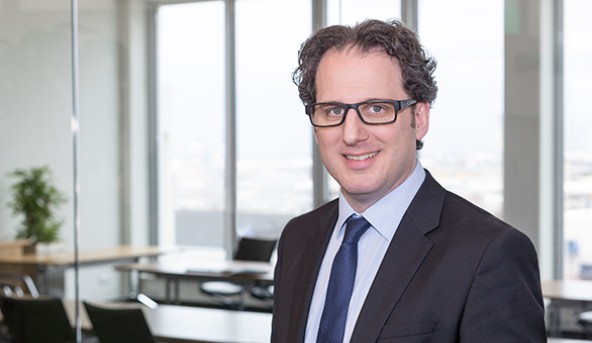
Mr Krappinger, what were Liebherr’s objectives when including the HLC 295000 in its product programme?
Reinhard Krappinger: Our objective is to consistently fulfil the needs of our customers. The HLC series has been designed, among other functions, for the development of offshore wind turbines. These are growing consistently and their components continue to expand to greater dimensions. Therefore, the heavy lift crane series was the logical answer to the trend towards increasingly larger offshore wind turbines.
Will the Maritime Cranes division focus even more strongly on heavy-duty cranes in the future?
Reinhard Krappinger: Yes. The expansion of the heavy-duty crane programme is anchored in our strategy because it enables us to serve a forward-looking, growing market segment. The background to this is the energy revolution: offshore wind turbines are being built more and more to guarantee sustainable energy provision. The energy revolution is also the driving force for the increased reduction in offshore oil and gas installations. One tries to dismantle as large parts as possible in order to reduce transport routes – another task that the HLC 295000 can easily manage, with its hub capacity of 5,000 tonnes. We are currently planning an annual turnover of one to two cranes from the HLC series, so there is a lot of potential.
The expansion of the heavy-duty crane programme is anchored in our strategy because it enables us to serve a forward-looking, growing market segment.
The first HLC 295000 is being produced for the Belgian DEME Group. Why did the customer choose Liebherr?
Reinhard Krappinger:Due to the complexity and size of these cranes there are only a few producers that can fulfil the required technological requirements and have adequate production capabilities. In addition to that, customers for this type of crane have extremely high quality demands and place importance on the fact that the place of production is Europe. We produce in Rostock, and with regard to quality we have the added advantage that basic components are from Liebherr’s own production. In addition to this, our customers require a competent, reliable service. We can fulfil all these requirements, that’s why they chose us.
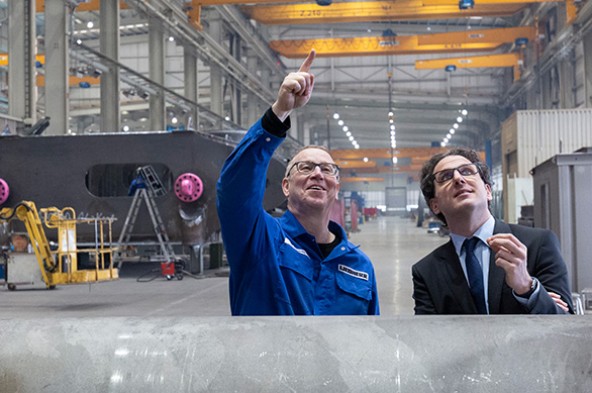
What did these customer requirements look like in detail?
Reinhard Krappinger: The requirements were primarily to lift high loads from plant parts and foundation structures. For example, it requires lifting heights of up to 175 metres to lift the topside, i.e. the entire part of the wind turbine that lies above the waterline. For this work, the HLC has a capacity of 8 megawatts as well as Litronic crane control, which we developed in-house.
What challenges does the construction of the HLC 295000 pose?
Reinhard Krappinger: A crane of these dimensions was something new, even for us. The size of the components alone as well as their transport to the individual production sites on our company premises make a respectively intelligent planning and logistics process necessary. For example, a processing machine had to be extended and installed in the production hall for the final revolving stage weighing in at 3,000 tonnes. We also constructed a portal heavy-duty crane for the initial assembly of the crane based on the MTC 78000 and built it up in our plant, the TCC 78000. It has a hub capacity of 1,600 tonnes and towers over the – to date – highest building in Rostock port at 164 metres, the cooling tower of the Rostock power plant. It is also one of the largest inland portal heavy-duty cranes worldwide.

How many employees are involved in the project?
Reinhard Krappinger: The HLC core team consists of inter-disciplinarian and cross-company participants. We have pooled competences from Liebherr plants in Rostock, Nenzing and Biberach. The employees come primarily from the sales, development, purchasing, production, initial assembly and customer service sectors. Depending on the development and construction phase, the team is comprised of 30 to 40 employees. Approx. 250 people are employed in the production sector.
And finally, Mr Krappinger, could you tell us how far the construction has progressed at the moment?
Reinhard Krappinger: The steel construction is more or less completed and we have begun with assembly. If you walk through our production halls, you can see the impressive main modules and the first major components such as large anti-friction bearings, winches or rotators. In total 800 tonnes of components come out of the Liebherr plant in Biberach.

